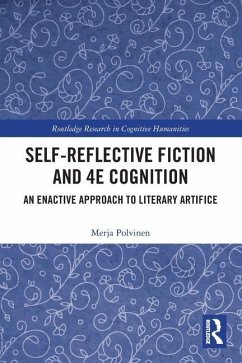
The Poetics and Ethics of Attention in Contemporary British Narrative
Versandkostenfrei!
Versandfertig in 6-10 Tagen
43,99 €
inkl. MwSt.
Weitere Ausgaben:

PAYBACK Punkte
22 °P sammeln!
This book uses attention as a prism through which to interrogate the literary text. It starts from analyses of the changes that the mediasphere and communication technologies have brought for the contemporary subject, submitting him/her to the tyranny of a new attention economy. My point is that the contemporary novel and memoir resist such influences and evince a great deal of resilience by promoting an "ecology of attention" (Citton) based on poetic options whose pragmatic effect is to develop an ethics of the particularist type. To do this, I draw on critical and theoretical literature hail...
This book uses attention as a prism through which to interrogate the literary text. It starts from analyses of the changes that the mediasphere and communication technologies have brought for the contemporary subject, submitting him/her to the tyranny of a new attention economy. My point is that the contemporary novel and memoir resist such influences and evince a great deal of resilience by promoting an "ecology of attention" (Citton) based on poetic options whose pragmatic effect is to develop an ethics of the particularist type. To do this, I draw on critical and theoretical literature hailing from various fields: psychology, but also more prominently phenomenology, political philosophy, and analytical philosophy (essentially Ordinary Language Philosophy), alongside the ethics of care and vulnerability. By using a selection of fictional and non-fictional narratives, I address such issues as social invisibilities, climate change, AI and cognitive disability and end up drafting a poetics of attention.














